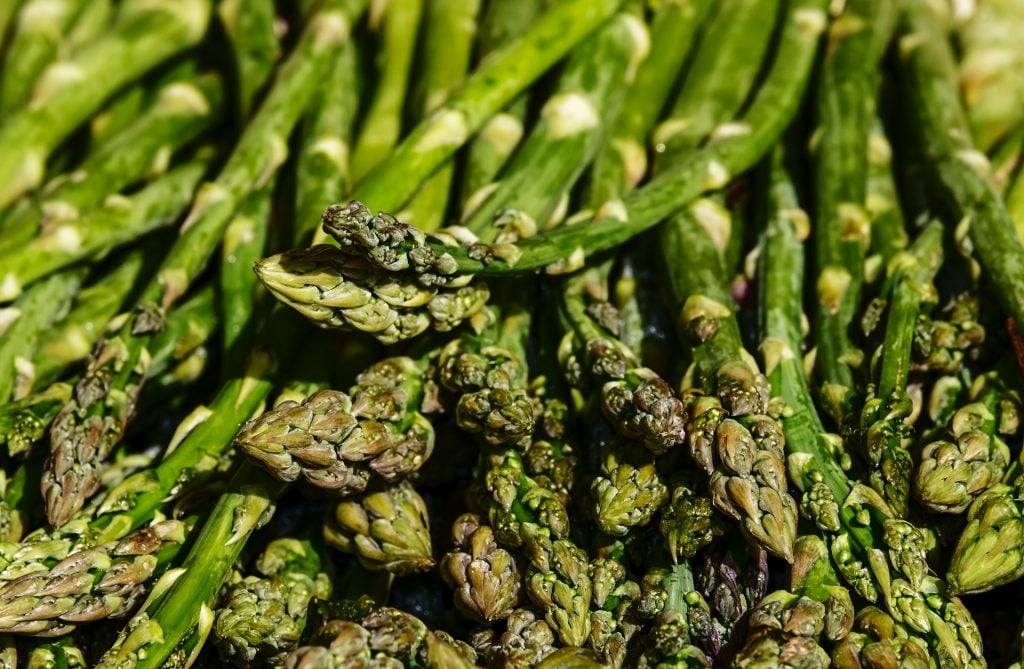
In recent years, asparagus has been promoted and enjoyed as a “superfood” but, like so many foods and plants which are constantly being “rediscovered”, asparagus predates recorded history. In fact, it is first recorded as being used for food in 200 BC, and the Greeks and Romans boiled it so quickly that they developed a proverb, “faster than asparagus is cooked”, which referred to something which happened at a rapid pace.
Asparagus is also known as Sparrowgrass, because of its popularity with the birds, and a strong case can be made that the name asparagus is a derivation of this common name. Everything from the water in which the asparagus is boiled, down to it’s fibrous spear, has a medicinal function—the most astonishing of which is as a slimming agent!
The ancient Greek physician, Hippocrates (from whom the Hippocratic Oath was taken) prescribed his patients asparagus if they were overweight or had skin problems, as the asparagine acid works on the metabolism and attacks the body’s fat cells, to help control weight issues.
Nicholas Culpepper (1616-1654) said: “The decoction of the asparagus roots boiled in wine, and taken, is good to clear the sight, and being held in the mouth easeth the toothache.” He also said it helps those sinews that “are shrunk by cramps and convulsions, and helpeth the sciatica”.
Low in fat and calories, but high in antioxidants, vitamins, minerals and fibre content, asparagus is delicious, versatile and can be used in a variety of ways, such as:
- The water in which the asparagus is boiled is used as a diuretic and a blood cleanser, making it an excellent spring cure.
- The spear, made into a tea, is beneficial for combating kidney stones, gout and rheumatism, and liver complaints.
- The fresh seed is made into a tincture which is used in homeopathy for bladder and kidney stones, fluid retention and rheumatism.
- The freshly squeezed juice of the asparagus is taken in tablespoonful doses, for the treatment of oedema and gravel.
- The vegetable itself makes an excellent laxative, which, in turn, would explain why it is strongly recommended for sedentary individuals.
Find out more about the medicinal benefits of asparagus and other super foods through enrolling in our Online Herbal Medicine Course today!
